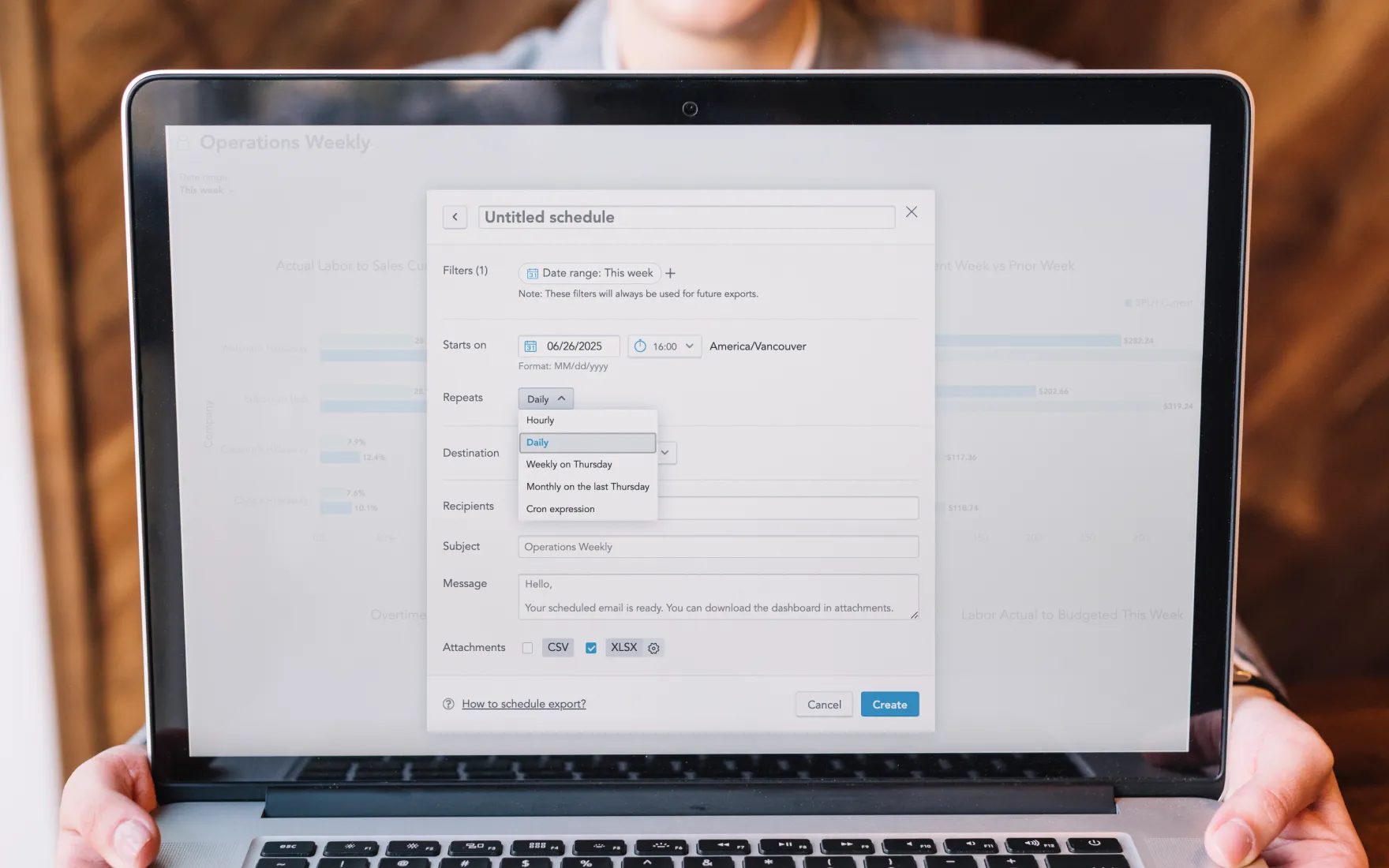Maternity Leave in Canada | An Employers Guide

Maternity leave is a subject of interest not only for pregnant workers but also for employers. Although many employers see maternity leave as an expense, a good maternity leave policy is beneficial to employers in a lot of ways.
Many employees check out a company's maternity leave policy before they apply for employment even when they are not expecting a baby anytime soon. The general impression most times is that a company that gives attention to maternity leave will have the concern and future of its employees at heart. And truth is, every worker wants to feel valued and treated well.
As a business owner, you need to understand what maternity leave entails, and how you can maximize it for your business growth and improvement. This article will guide you to all you need to know about maternity leave as an employer in Canada.
Understanding maternity leave in Canada as an employer.
Maternity leave is a period in which an employee is granted time off work because of childbirth. It is granted to pregnant women or nursing mothers in an organization, who cannot fulfill their work obligations because of their antenatal or postnatal conditions.
Sometimes, maternity leave can start before childbirth if the employee requests for it, especially if the pregnant worker has pregnancy complications. Also, maternity leave can start immediately after childbirth.
Although maternity leave may be an unpaid leave, employers are expected to allow their employees to resume their job after maternity leave. As such, the employee does not have to bother about losing their job while on leave.
However, note that maternity leave is not to be mistaken with parental leave even though they are very similar. Parental leave is the time granted to parents to stay off work in order to take care of their new child. Parental leave applies for both biological childbirth and child adoption. While maternity leave is just for pregnant or nursing mothers, parental care may involve both fathers and mothers.
How long is maternity leave in Canada?
When an employee takes maternity leave, it can create loopholes in the fulfillment of their duties if not properly covered. This is why the duration of maternity leave matters to employers. In most cases, the shorter the leave, the better for the company, depending on the level of importance of the office affected.
According to the Employment Standards in Canada, maternity leave can last up to 17 weeks. However, employees can also apply for parental leave immediately after their maternity leave. That way, they will be able to get extended time off work. Note that the total duration for both maternal and parental leave must not exceed 78 weeks.
How does maternity leave work in different provinces?
From the duration of leave to the starting and ending period, the terms and conditions for maternity leave may vary for different provinces in Canada. Let us consider the provincial differences in the modalities of maternity leave in Canada.
Maternity leave in Alberta.
The earliest an employee can get a maternity leave is 12 weeks before the due delivery date. The total leave duration is 15 weeks with a possible additional 37 weeks of parental leave. To be eligible, employees must have been employed continuously for 52 weeks.
Maternity leave in British Columbia.
Employees in this province can get a maternal leave from as early as 11 weeks before the expected delivery date. The maternal leave is expected to last for 17 weeks while parental leave can last for 35 weeks.
Maternity leave in Manitoba.
Maternity leave here can last up to 17 weeks, with the earliest starting date being 17 weeks before the due date. Employees can also get 37 weeks of parental leave. To be eligible, the employee must have worked for 7 months consecutively.
Maternity leave in New Brunswick.
This province allows for a total of 17 weeks of maternity leave even though workers can start as early as 11 weeks before the due date. Parents can also obtain 37 weeks of parental leave.
Maternity leave in Newfoundland and Labrador
Employees in this province need to be continuously employed for at least 20 weeks before they can obtain a maternal leave. The maternal leave can last up to 17 weeks with a possible parental leave of 35 weeks. The earliest time the leave can commence is 17 weeks before the due date.
Maternity leave in Northwest Territories.
It is possible to get maternity leave 17 weeks before the delivery date, and the total duration of the leave is expected to be 17 weeks. Employees may also apply for a parental leave of up to 37 weeks. Eligibility requires at least 12 months of consistent employment.
Maternity leave in Nova Scotia.
Maternity leave in this province demands at least one year of active employment. Qualified employees may get up to 17 weeks and may start from 16 weeks prior to the expected due date. The pregnant employee may get up to 35 weeks of parental leave while the non-pregnant parent can get up to 52 weeks.
Maternity leave in Nunavut.
It will take 12 months of consistent employment to qualify for maternity leave in Nunavut. The leave can last as long as 17 weeks and can start as early as 17 weeks before the due date. For parental care, a maximum of 37 weeks is allowed.
Maternity leave in Ontario.
13 weeks of continuous employment is enough to be eligible for maternity leave. The maximum leave duration is 17 weeks while the earliest commencement time is 17 weeks before the expected delivery date. Parental care may last up to 35 weeks.
Maternity leave in Prince Edward Island.
Continuous employment for a minimum of 20 weeks is required for maternity leave in this province. The maternity leave can begin as early as 11 weeks before the due date and must not be more than 17 weeks in total. Employers may also obtain 35 - 52 weeks of parental care.
Maternity leave in Quebec.
The total duration allowed in Quebec for maternity leave is 18 weeks. To get additional time off work, employees can apply for parental leave which can last up to 52 weeks.
Maternity leave in Saskatchewan.
This province requires up to 13 weeks of employment to be eligible for maternity leave. Both pregnant and adoptive parents can have up to 18 weeks of maternity leave and may start as early as 12 weeks before the expected delivery date.
Maternity leave in the Yukon.
In Yukon, maternity leave seekers are required to work for at least 12 months before they can apply for maternity leave. The maternity leave may last for up to 17 weeks, with possible parental care of up to 37 weeks.
When does maternity leave start?
The starting period for maternity leave may vary across different employers and employees. However, different provinces may stipulate different maximum starting points according to their different requirements.
Employees who intend to have a maternity leave are expected to submit a maternity leave letter to their employers for approval. The maternity leave letter must follow the specified format and must be submitted at least four weeks before they leave.
Do employers pay for maternity leave in Canada?
Employers in Canada are not mandated by law to pay for maternity leave. However, they are required to provide the time off work and can also provide any extra benefits as they deem fit.
Also, there may be some federal support programs that may provide financial benefits to employees on maternity leave. You can contact Service Canada via a toll-free call on 1800 Canada to find out which of such programs you can benefit from.
As an employer, what do you need to prepare before maternity leave?
When you get a maternity leave letter from your employee, you already know you will have to do without them for as long as they are out. It demands some level of preparation to ensure that your business does not suffer from their absence.
Congratulating the expectant employee/couple is not a bad idea. It shows that you have their best interest at heart and are not just interested in having them work for you. It's a good way to improve employee loyalty.
Before the maternity leave, it is best practice to figure out the best way to fill in for the employee's position to ensure smooth continuity. With a professional Employee Management Software such as Push HCM, you can easily manage your workforce to accommodate the changes.
Remember that your employment insurance demands that the employee's job is secure during the approved maternity leave. So, the solution is not in replacing him permanently.
Also, you may need to inform your team about the expected absence from work so that necessary adjustments can be made. Finally, you can implement other benefits to support your employee throughout the unpaid time off work.
We hope this helps you navigate maternity leave as an employee and an employer!



